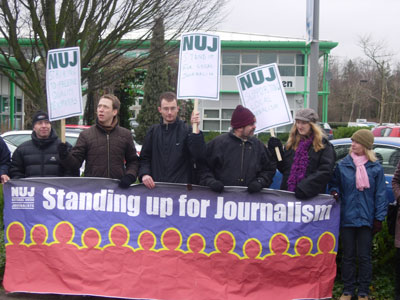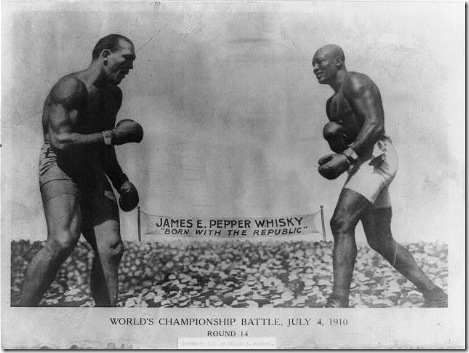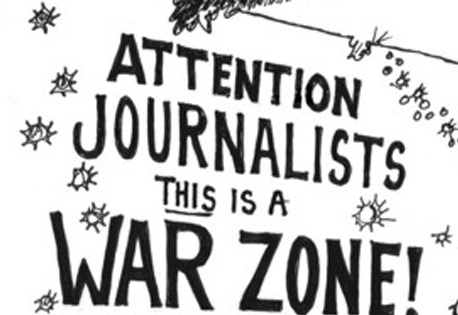As the Yorkshire papers start scything through their workforce, what world are new journalists stepping into?
My recent attempts to acquire the golden chalice that is work experience – in this case at the Yorkshire (Evening) Post – have been unceremoniously rebuffed to date. This in itself is a form of experience: jobs are at a premium. As if the journalistic trade wasn’t competitive enough.
As I understand it, there are many doorways leading to a job in journalism. There are journalism students spilling over from every college and university in the land. Young start-ups sneak their way in the back door after years of work experience and no qualifications. Ex-professionals drop their political surliness or hang up their football boots as they are lured into the newsroom to set up shop as specialist hacks. And now this modern age of the social media blogosphere allows any novice to up-load and publicise their un-edited opinion (mine included) saturating the market with comment and observation.
Yet, the latest news on the Yorkshire Post has rudely awakened me to the understanding that these doorways are being ruthlessly slammed shut in our faces. The jobs we all desire and fight tooth-and-nail for are drying up and being scrapped by the big wigs.
In reaction to this news, or more accurately, to save the jobs for those that have been putting in the hours and providing the copy for their papers, the National Union for Journalists have instigated the campaign, ‘Stand up for Journalism’ to blow the whistle on any ill treatment dealt out by their conglomerate owners. In this case Johnston Press firing and culling the Yorkshire Post workforce willy-nilly. And last week’s strikes outside the newspaper’s building in Leeds was a prime example of the public outcry against these job cutbacks and forced redundancies.
The NUJ’s message of solidarity was spread through the city on flyers reading:
“Journalists take a stand to defend Yorkshire papers – Local community let down by newspaper owners.
“Despite making massive profits, Johnston Press has been cutting back on journalists, putting the quality of your local paper under threat. Fewer people are now expected to do more work and it is damaging local journalism. Further cutbacks will make it harder for journalists on your paper to:” … GET A JOB!! At least that is the first problem I can infer on a personal level from this news.

All of this spells trouble for the journalist student. I have the course but as yet, only brief stints of experience – invaluable though it has been – but if I aim to establish myself in the industry I will need many more placements and opportunities to work in bustling newsrooms. If the staff on the books at these institutions are fearing for their jobs then what is the likelihood they’ll be desperate for more recruits come the end of the year and as for offering work experience, it seems, and understandably so, that the powers that be who decide to hand out this experience have far more pressing issues to be concerned with currently.
So as the old adage goes: ‘you need experience to get experience’, how the hell am I going to get these placements I crave? And even without this ‘catch22’ situation, once I have successfully (I hope) navigated the NCTJ course, what is going to be waiting for me once I take my first brave steps into the media world???
So, off the top of my head, here are my foreseen options:
1. Local Papers
I have made forays into this realm with work experience at the Huddersfield Examiner and will soon be plying my trade at the Wakefield Express. Yet the latter is still run by Johnston Press so jobs will be equally hard to come by as at the Yorkshire Post. Nevertheless, these are the places where raw ability can be sculpted into genuine talent and, if I apply myself on these rare opportunities of work experience, then at least I will be remembered if the unlikelihood of a job vacancy arises.
2. National Papers
The Independent and the Guardian have drawn my attention to internships and graduate schemes. Last year in an overly ambitious attempt to get myself into the Guardian I filled in one such application yet with minimal experience to call on, I wasn’t kidding anybody when they said ‘better luck next time’. Yet as alluring as these offers would be, only a handful of the journalist graduates that I mentioned, spilling out from the national pool of writers and reporters, would find themselves accepted. Furthermore, as if to add insult to injury, the Guardian website for applications reads:
“The Guardian’s one-year training programme is designed to attract promising journalists. The scheme attracts an annual salary of up to £25,000, including six weeks paid holiday. Please note that this scheme will not run in 2009/10.”
Perfect. Just when you’ve made our mouths water and imaginations run away with the thought of getting paid teaching, you give us the proverbial ‘piss-off’ and slap in the face. Who knows when these will run again?
3. Magazines
Similarly to many newspapers of late, opportunities here are limited as the fame and glamour attached to every professional sport means that when the celebrity sportsman finally retire from the game, they have a readymade readership waiting for their insights as specialists. E.g. Jeremy Guscott’s column on Rugby Union for the BBC, former England cricket captain Michael Atherton’s thoughts for The Times, Jim Watt’s insider knowledge of boxing for Sky Sports, then there is ex-football professionals. Andy Gray, Alan Hanson, Chris Kamara, Lee Dixon, David Pleat, Jamie Redknapp and in the past even John ‘get round the back’ Barnes has unfathomably been recruited into well paid positions. Even ex-politicians like Michael Portillo are getting a sniff. Understandably, editor’s can see how their first-hand experience outweighs that which young hacks can bring to the table.
However, this problem has had offerings of solutions propagated in the magazine market. The ‘catch 22’ scenario, of needing experience to get experience, has led to a magazine of said name to establish itself based on the writing talents of new journalist students, lacking in specific experience, but with the drive and aptitude to bring something fresh to anything worth an opinion. Their myspace page reveals the inspiration:
“A dynamic social enterprise! We champion and train aspiring professionals that want experience but can’t get experience due to their lack of experience.”

Taking students on a 12 week course affiliated with the London College of Communications, who gain sponsorship for this insight into the industry, and who contribute to the production of their quarterly Catch 22 Magazine as their output. This is affordable, recognisable experience producing a tangible piece of published work to present to future employees which kick-starts their career in journalism. We should all be so lucky, yet dedication and application, as well as a certain flair for writing and abundance of creativity are vital attributes to make this work.
4. Freelance
One of my tutors on my own course at News Associates has made a profitable career out of such a discipline. A good nose for a story is pivotal to success but the fruits of working on your own terms are very appealing. Furthermore, this gives you the freedom to choose what to run with and how to write it. Examples of merely picking up a story – such as interviewing the creator of Thunderbirds and discovering his plans to write another series – then off-loading it to an unscrupulous national such as the Sun and pocketing a handsome £500 are very possible (insider course knowledge is privileged). Yet the positives are off-shot with the fear of not having a set wage and paper to make your name with. Yet this isn’t ruling freelance work out.
5. PR and press officers
Slightly set away from a direct route in journalism is the possibility of turning your hand to something like public relations. Journalists receive countless press releases and the possibility of turning provider to other news outlets is certainly an alternative to doing the investigative work yourself. It would mean representing the company rather than speaking for the people, as journalism is fundamentally required to do, and this means a shift in mindset would be required.
Further skills and practices would have to be learned yet the basics are brought through an understanding of writing for a paper and the insider knowledge that goes with receiving these press releases. Two of my tutors have shown the possibility of making a career out of this switch at their local councils, but I feel it slightly tarnishes the whole concept of uncovering news, rather than just gullibly swallowing down information fed to you by spin masters in press offices. Then again, that only occurs with companies hiding something (i.e. the council) but representing somebody like Manchester United FC Ltd would present a wholly different situation. Merely fielding questions about how many trophies are planned to be acquired next year or where the next £30.75m signing fee will be spent.
6. Corporate Communications
And lastly, I can envisage Corporate Comms. as an alternative solution. A recent talk by Smyth Harper, Acting Deputy Director in this field for the Greater Manchester Police revealed the possibilities. In being behind the media operation, spearheading efforts to reel in the latest scumbag on the run or campaign against knife crime has its exciting and ethically sound positives. Yet, simultaneously having to take the flack when things don’t go to plan – such as the Manchester riots when Glasgow Rangers fans came to town in May last year – would present complications that would require a very refined skill and ability to collaborate with the local media (Manchester Evening News in this case). Harper himself got into this line of work after reporting for a paper in Derry, showing that such journalism skills are invaluable. It is another example of how my learning and time on this course will stand me in good stead for a number of possibilities down the line.
So, as I have realised, there is a plentitude of directions I can take once my course finishes, even if those at the Yorkshire Post don’t see fit to offer me work experience.
Ideally I would like to believe I could find myself in the warm comforting embrace of an established national, with the paternal guidance of a graduate scheme easing me out into the scary world of reporting. Yet failing that, I am beginning to understand how the skills and tools that journalists equip themselves with are often transferable into other industries, and this is exciting in itself – knowing that there is more than just one goal at the end of it all.
A place on a paper or magazine is not the be all and end all of journalism, though the thought of my name being followed by the words Chief Correspondent or Sports Editor would be rather nice. For now at least, it uncertainly, yet proudly reads: Sam Rider, Aspiring Journalist.











Latest comments